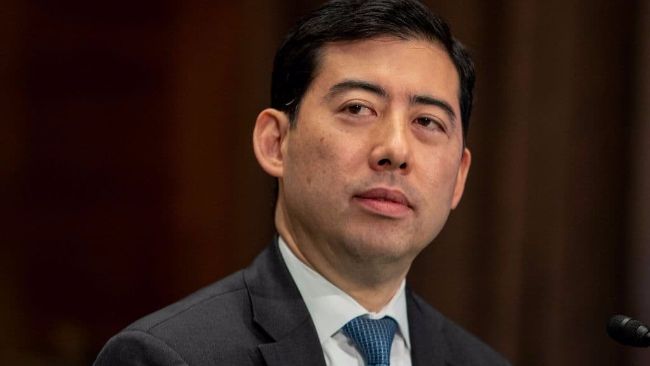U.S. financial markets have long been burdened with a patchwork of outdated, overly complex, paternalistic rules. Meanwhile, the government’s failure to establish a regulatory regime for digital assets, coupled with its aggressive persecution of the industry, has stifled innovation. Unsurprisingly, the rest of the world surged ahead, leaving the U.S. behind.
Now, under President Trump’s leadership, we stand on the brink of a historic shift. His “largest deregulation campaign in history” and “revolution of common sense,” offers us a rare chance to remove artificial boundaries, retire antiquated philosophies, and rethink our approach to regulating financial markets and digital asset ecosystems. Instead of creating and being bound by reactive regulations designed for past crises and technologies, we can design flexible, forward-looking frameworks that promote innovation.
As I envision these frameworks, I’m reminded of wisdom shared by Securities and Exchange Commission Chairman Harvey Pitt (2001-2003), a lion of the securities bar, who proposed a simple yet profound solution to improve U.S. equity markets: develop guiding principles for our markets to embody. Chairman Pitt likened these to God’s Ten Commandments — clear principles to govern conduct with the industry tasked to meet them.
Too often, regulators and market participants get bogged down in the minutiae of prescriptive laws and miss their core intent. While norms, standards and rules have their place, the “ten commandments” proposed here provide a strong foundation for future frameworks. The key is to first understand the purpose of the federal securities laws.
At their core, these laws govern transactions involving securities — whether shares of a company, loan promises, or investment stakes. When people entrust you with their money, you owe them specific duties. The securities laws are primarily a disclosure regime designed to ensure fair and transparent exchanges that give investors the information they need to assess the risks and rewards of their investments.
Read more: Trump Said to Consider Crypto Lawyer Teresa Goody Guillén to Lead SEC
These laws emerged after the 1929 stock market crash, which was fueled by unethical practices such as insider trading and stock manipulation, and exacerbated by information asymmetry between buyers and sellers of securities. The Securities Act of 1933 and the Securities Exchange Act of 1934 were enacted to prevent these abuses and to facilitate companies obtain capital, protect investors who invest their capital, and ensure markets are fair and efficient, while minimizing burdens on honest business activities.
Despite good intentions, these laws have become overly complex, stifling competition and limiting investor freedom. To reimagine financial market regulation, particularly in light of emerging technologies and digital assets subject to the securities laws, we must return to the principles that shaped these laws —principles that promote fairness while minimizing burdens on honest businesses.
Based on Chairman Pitt’s vision, I distilled the core values for market participants into the following ten commandments for a trustworthy market:
- Thou shalt disclose material information. Full and fair disclosure is the crux of the securities laws. Issuers must provide truthful, complete, and nondeceptive material information to investors so they can make informed financial decisions. Concealing or misrepresenting critical information that impacts profit expectations undermines trust and market integrity.
- Thou shalt not deceive or manipulate. Fraud and market manipulation distort securities’ true value, harming investors and the market. Preventing deceptive practices helps ensure fairness.
- Thou shalt not trade on material nonpublic information. Insider trading gives an unfair advantage to those with access to confidential information. This ensures a fair playing field for all market participants.
- Thou shalt tell the truth about your financial health. Financial statements must be accurate and transparent, reflecting a company’s true financial condition, so investors can accurately assess risks and make informed financial decisions.
- Thou shalt treat all investors equally. All investors must have equal access to material information and opportunities. This ensures fairness and prevents insider advantages and discriminatory practices.
- Thou shalt reveal the risks involved. Investors must be informed of the risks associated with their investments so they can make choices aligned with their financial goals and risk tolerance.
- Thou shalt act in accordance with your duties to others. Market participants who owe obligations of trust and responsibility, such as financial professionals and corporate directors, must act in the interests of their clients and shareholders, not for their own personal gain.
- Thou shalt strive to avoid conflicts of interest, but if some are unavoidable, thou shalt disclose them. Market participants should avoid or minimize conflicts of interest, but if unavoidable, conflicts must be disclosed. Transparency allows investors to make decisions with an understanding of potential biases and preserves trust.
- Thou shalt ensure fair and transparent markets. Markets must operate on the basis of true supply and demand, free from artificial distortions. This promotes trust and fair pricing.
- Thou shalt promote efficient and orderly markets. Markets must operate smoothly, with transparent pricing and equal access for all participants. This fosters market stability and investor trust.
By focusing on these core principles, we can create adaptable regulatory frameworks that keep pace with technological advancements and avoid the constraints of outdated laws. This is the time for a seismic shift in financial regulation toward an approach that anticipates future markets and innovations. We can build a future-proof financial system that benefits everyone by ensuring clarity, fairness, and order while fostering innovation.
Read the full article here









